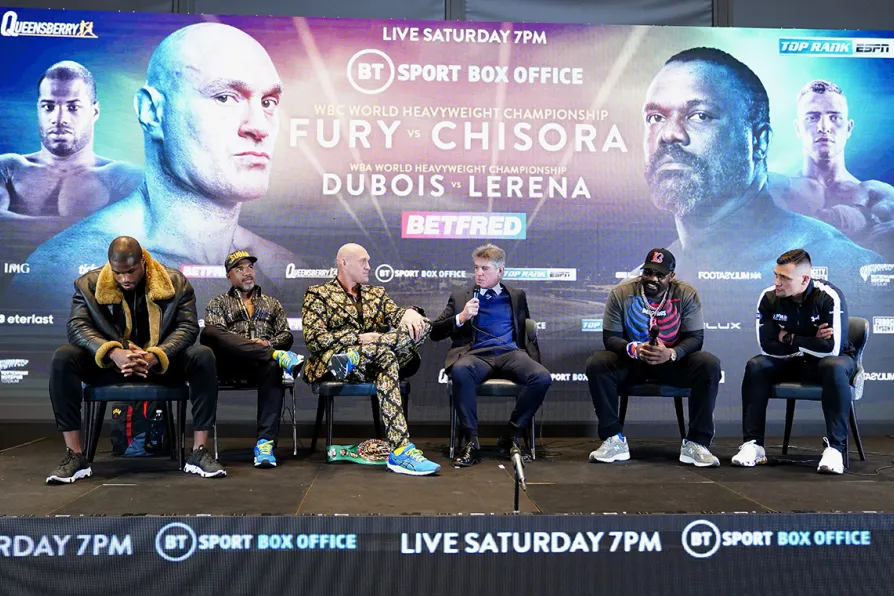
 Daniel Dubois (left), Tyson Fury (third left), Derek Chisora (second right) and Kevin Lerena (right) during a press conference at the Tottenham Hotspur Stadium, London
Daniel Dubois (left), Tyson Fury (third left), Derek Chisora (second right) and Kevin Lerena (right) during a press conference at the Tottenham Hotspur Stadium, London
FRESH on the back of one of the worst hometown decisions ever awarded in a boxing ring, involving Britain’s Dillian Whyte being given the nod over Jermaine Franklin of the USA despite the latter out-boxing and out-landing the Londoner for the vast majority of the fight at Wembley Arena last weekend, all eyes turn to Tyson Fury’s latest foray — this time against Derek Chisora — at Tottenham Hotspur Stadium tonight.
On paper this is not a fight anyone should be more than mildly interested in. Put plainly, expecting 70,000 fans to turn up to brave the evening winter weather at an open air stadium to watch Fury take on a fighter, in Chisora, who’s lost three of his last four fights and who at 38 has had more lickings than a cat’s paw, is the very definition of a brass neck.
Compounding the offence is broadcaster BT Sport charging £26.95 for the privilege of watching these proceedings from the comfort of your own living room, having concluded that Fury’s profile and celebrity justifies shearing the boxing public like so many sheep.

When Patterson and Liston met in the ring in 1962, it was more than a title bout — it was a collision of two black archetypes shaped by white America’s fears and fantasies, writes JOHN WIGHT












